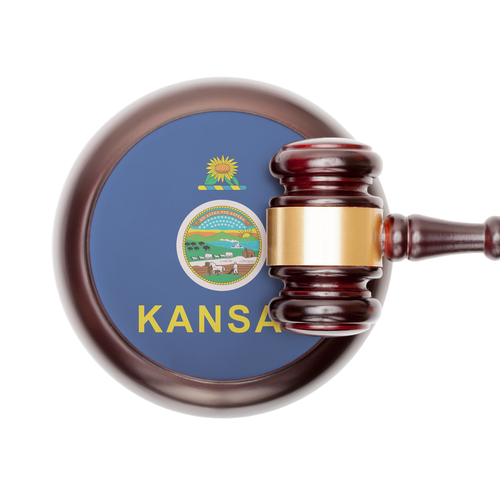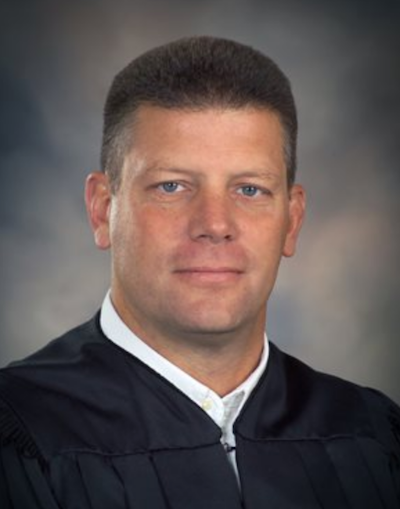There's no need to 'act on every scrap of tittle-tattle,' justice says in nude-pics ethics case

Image from Shutterstock.
The Kansas Supreme Court on Friday took no further action against a retired judge accused of posting nude photos of himself on a swingers website while he was still on the bench.
A concurrence went further, decrying a surveillance state of “big and little brothers” and comparing the retired judge’s situation to that of Hester Prynne, a character in The Scarlet Letter condemned to wear the letter “A” for committing adultery.
The Kansas City Star has coverage of the Jan. 28 decision.
Wisdom counsels “that Big Brother himself is not obliged to act on every scrap of tittle-tattle that comes his way from ill-meaning little brothers,” said the concurrence by Justice Caleb Stegall, joined by Justice Keynen “KJ” Wall Jr.
Stegall refers to the government as Big Brother, and corporations and individuals with access to social media as little brothers.
 Retired Russell County Magistrate Judge Marty Clark. Photo from the Kansas Judicial Branch.
Retired Russell County Magistrate Judge Marty Clark. Photo from the Kansas Judicial Branch.
The retired judge is Judge Marty Clark, a nonlawyer who was a magistrate judge in Russell County, Kansas. He had posted sexually revealing photos of himself on a social media website known as Club Foreplay, or C4P, according to findings of fact by the Kansas Commission on Judicial Conduct.
Clark did not use his real name on the website, and his sexually revealing photos weren’t publicly available. Clark sent the photos to a woman on the website whom he previously met on vacation with his wife.
The woman’s husband filed an ethics complaint against Clark.
The Kansas Commission on Judicial Conduct found that Clark violated judicial canons requiring a judge to act with integrity and recommended a public censure.
The Kansas Supreme Court said it had jurisdiction because the conduct happened while Clark was a judge. But the court noted that Clark had not filed any exceptions to the commission recommendation.
“Because everyone involved in this case has come to the same conclusion, we see no need to further question their resolution,” the state supreme court said.
Stegall characterized the court’s decision as “go, and sin no more,” which he deemed “an apt and fitting conclusion.”
Stegall argued that Clark’s conduct was “embarrassing, foolish and grossly immoral.” But the conduct didn’t violate any judicial conduct rules, Stegall said, because it consisted of “lawful, private, consensual sexual practices” that had no connection to Clark’s role as a judge.
Stegall argued that judges “are not a priestly class of elite rulers” who are worthy to be obeyed because of moral and intellectual superiority. “We are all sinners,” Stegall wrote.
“The purpose of the Code of Judicial Conduct is not to protect or project an illusion of judges as angelic demigods or Mosaic lawgivers. It is quite the opposite—to guard against the very real danger of judges as ordinary human beings tempted to abuse their power in vain and self-interested ways,” Stegall wrote.



